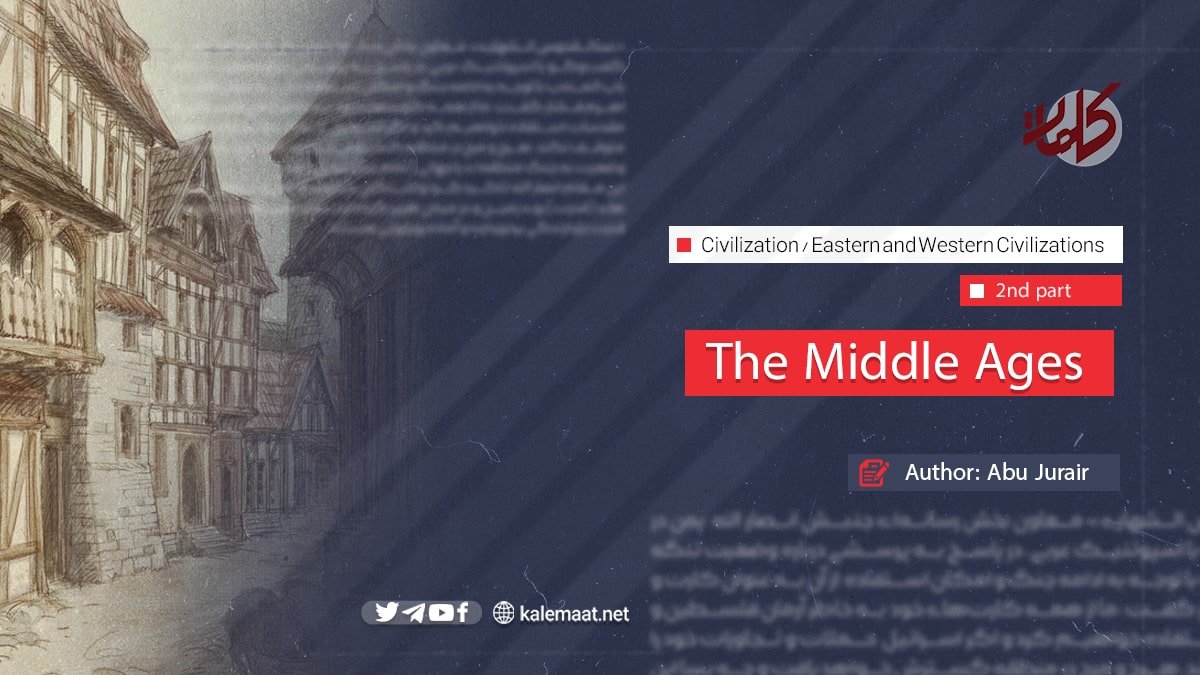Author: Abu Jurair
The Middle Ages (2nd Part)
Because of the exact understanding and understanding of the same reason why Westerners call the Middle Ages the Dark Ages? It should be noted that “the Middle Ages refers to the time between the 5th and 15th centuries.” The general view of this period, influenced by the thinkers of the Renaissance, is completely negative and full of ignorance, poverty, misery, etc.
It is true that Europe, especially in the early centuries of the Middle Ages, experienced a dark age, which, along with the insecurities resulting from occasional barbarian invasions, Saracens or bandits, poverty, lack of urban facilities due to the destruction of urban infrastructure by barbarian invasions, It was ignorance and superstition; But the main cause of these calamities was not following the divine revelation and not having a certain idea and method for their intellectual development.
For example: in the early Middle Ages, less than 10% of the land was arable; But at the end of the Middle Ages, the situation in Europe changed, which will be mentioned below.
In the Middle Ages and before the establishment of independent states in France, Spain and England, not only did there not exist any cities; Moreover, no powerful political structure had been created; But the Islamic Ummah had the best political system and was the first word of the Islamic state in the world. The Islamic Ummah was a single Ummah, not several countries.
The nation had a specific political system, which basically followed the revelation, and their law was based on the words of Allah and the Messenger, not the people of the society and the nation of Europe; During this period, the main power was in the hands of the Pope as the religious leader of Europe and the feudal lords as the providers of security and minimum subsistence for their serfs.
Although, at times, people like Charlemagne and dynasties like “Marungins and Carolingians” formed governments; But in practice, the main power was in the hands of the feudal lords, and even in the late Middle Ages, some feudal lords had more power than the kings of France or Germany; That is why Westerners call this period the dark age.
In today’s age, whenever a name is taken from civilization, it immediately comes to people’s minds that this was the achievement of the Greeks and Romans, and if we come back a little later, they think that only Westerners were innovators and inventors; While this was not the case; Because in the Middle Ages, which is known as the dark ages, the Salam nation lived at the height of civilization, which was the height of darkness in Europe from the west; But if we look at it from the perspective of Islam, it is called the age of civilization and the golden age for Muslims.
Muslim brothers and sisters! Islam itself is the religion of material and spiritual health in the world of this world, the world of purgatory and the world of resurrection, which ultimately brings a person into Dar al-Salam. Islam is a comprehensive and complete religion that teaches mankind how to live materially and spiritually.
Like the ideology of democracy, Islam does not only think about materialism, and also like Christianity and Hinduism, it does not only think about spirituality; Rather, Islam has a regular plan for all aspects of life; Because Islam is the only stable religion and religion in the world and life is not only materiality nor spirituality; Rather, both should be combined so that the result is growth, development, civilization and prosperity.



